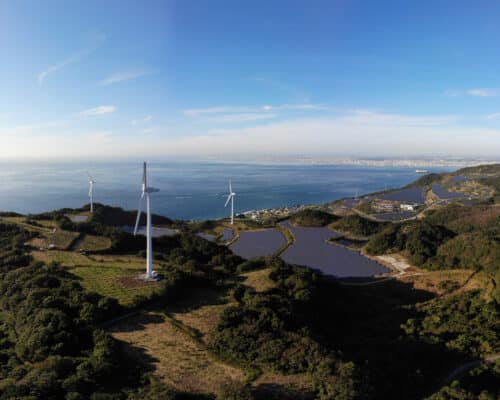The Energy Mix Review in Japan – A Glimpse of the Future
12 May 2022 – by Viktor Tachev
Japan is often seen as a benchmark for technological advancements and innovativeness. As a trend-setter, the globe earnestly watches the country’s moves. The case is no different regarding Japan’s energy mix, consumption and generation. In particular, its energy mix review outcome will determine whether the country will steer toward sustainability and how quickly it plans to escape the grasp of fossil fuels.
Japan’s Energy Mix
According to the IEA, fossil fuels accounted for 88% of Japan’s total power generation in 2021. This is the sixth-largest share among all IEA countries. More importantly, the country imports foreign resources to satisfy over 96% of its current energy consumption needs. As a result, the heavy reliance on fossil fuels places Japan in fifth place globally in terms of carbon intensity – despite figures decreasing steadily in 2011.
However, in recent years Japan has significantly diversified its energy mix. It has strived to reform its energy policy and systems by focusing on renewable energy. So far, the results are satisfying, although the country has significant room for improvement.
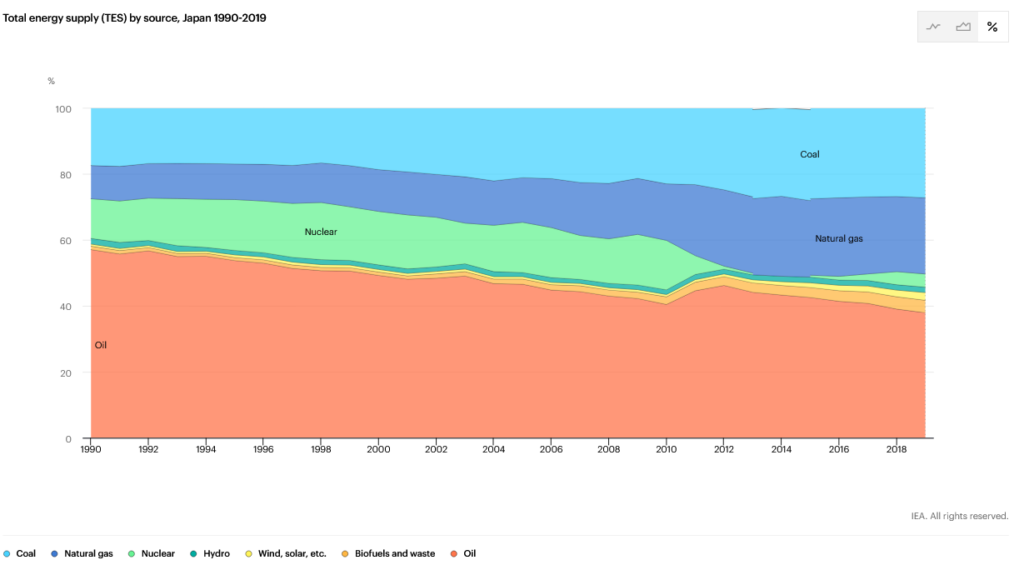
Japan’s Current Energy Policy Plans
Already, Japan has committed to reducing its emissions by 26% by 2030. Additionally, it has a goal of carbon neutrality by 2050. Yet, to achieve this, Japan must significantly increase its renewable energy power generation share in its energy mix. As such, the current plan aims to boost renewables to meet up to 22-24% of Japan’s electricity needs by 2030. In recent years, substantial progress has been encouraging, as the country reached that target in 2020, a decade ahead of schedule.
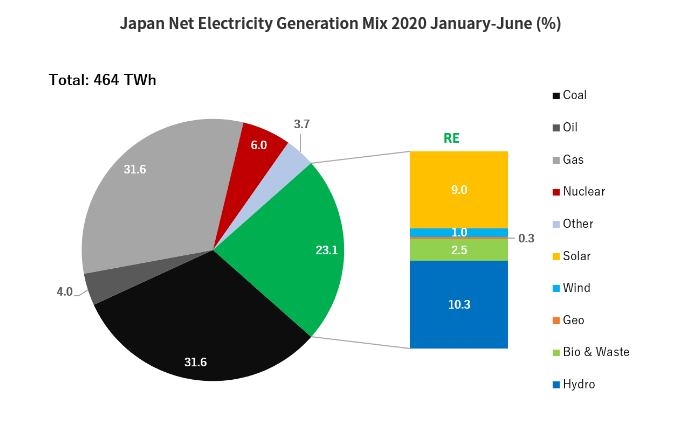
Despite the good news, Japan’s renewable power generation remains lower compared to the EU. This is especially critical when considering Japan’s high renewable energy potential. The disparity is even more glaring when compared with Asia’s leaders in renewables adoption, including Myanmar (68%), Sri Lanka (51.3%), the Philippines (47.5%) and Indonesia (47%).
However, achieving the goal earlier than expected provides Japan with the unique opportunity to increase its 2030 energy mix renewable energy target and aim at even better results. Business leaders within the country don’t see it just as an opportunity but more of a necessity.
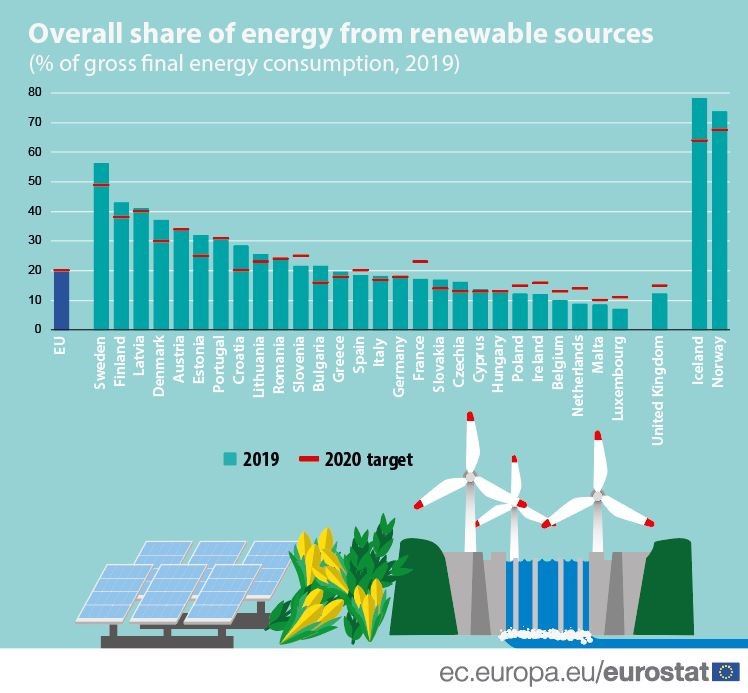
A “Green Call” From the Corporate Sector
Since Japan’s latest energy mix review, the Japan Climate Leaders’ Partnership (JCLP) urged the government to raise its 2030 renewable energy target to 50%. This would enable the country to remain on target to meet its net-zero goals by 2050. Additionally, a coalition of over 170 of Japan’s leading companies demanded authorities to prioritise the environment over economic efficiency. JCLP further requested the government to carry on with the phase-out of inefficient coal-fired power plants and halt the construction of new ones.
In December 2020, the corporate sector and the local business community presented a new “Green Growth Strategy in line with Carbon Neutrality 2050” strategy. In short, the plan calls for both economic growth and environmental protection. This would see renewables account for 50-60% of Japan’s power generation by 2050. Nuclear and thermal plants with carbon capture and storage would make up the rest, with help from hydrogen and ammonia generation.
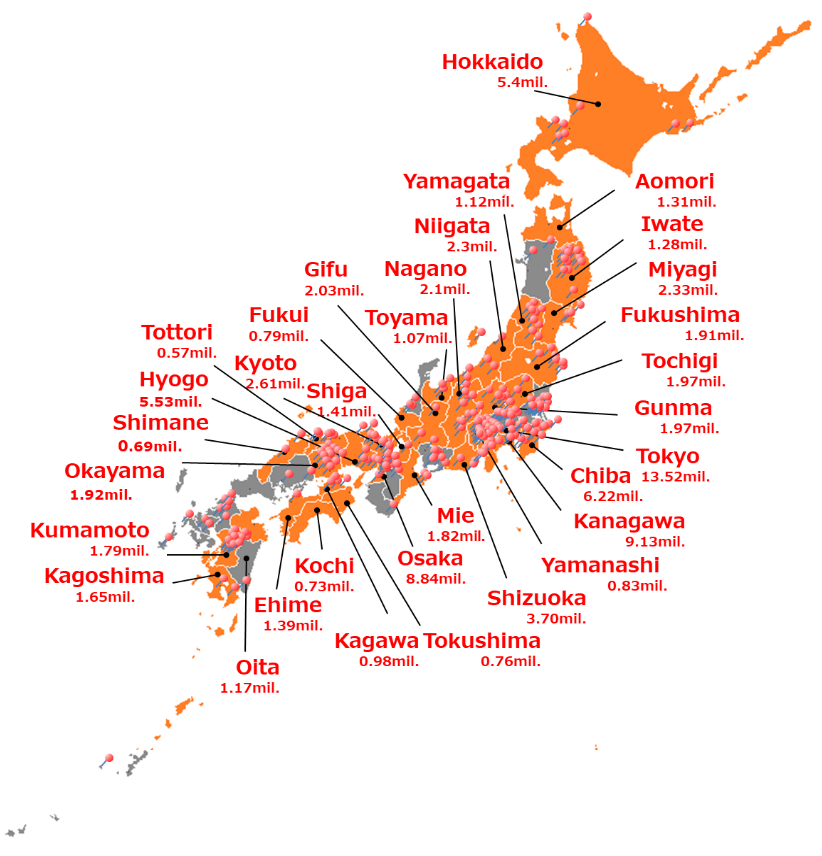
The Importance of the Energy Mix Review in Japan
October 2020 marked the start of the latest energy mix review in Japan. The initiative reflects the Ministry of Economy, Trade and Industry’s intention to accelerate renewable energy adoption. Ideally, this will update and improve its medium and long-term energy plans.
The outcome of the review is a topic of global interest. It will shed light on Japan’s determination for carbon neutrality by 2050. The country’s next move could provide valuable lessons for the international energy community by cementing renewable energy as the best way forward.
Japan is perfectly positioned to push for an internationally shared vision of speeding up the green energy transition. For Japan, the shift towards green energy is all the more pertinent as it has the potential to solve some of its most challenging energy consumption problems. This includes import-dependency, high energy costs and an over-reliance on fossil fuels.
As the JCLP’s report concluded, for this to happen, Japan needs strong political leadership. It remains to be seen whether the government will address the corporate sector’s push for 50% renewable energy by 2030 instead of 2050. What is certain, however, is that the world is watching.
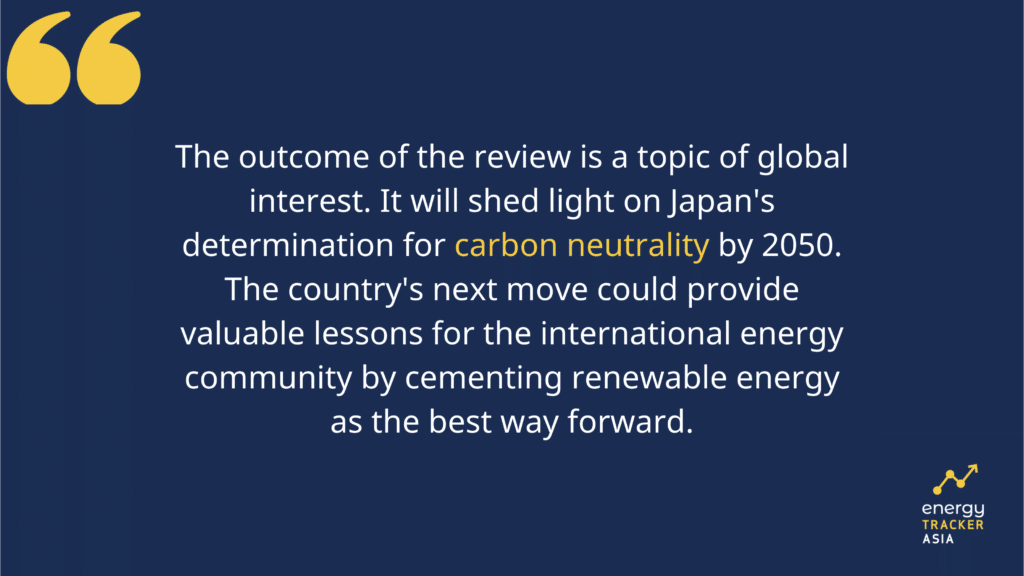
by Viktor Tachev
Viktor has years of experience in financial markets and energy finance, working as a marketing consultant and content creator for leading institutions, NGOs, and tech startups. He is a regular contributor to knowledge hubs and magazines, tackling the latest trends in sustainability and green energy.
Read more